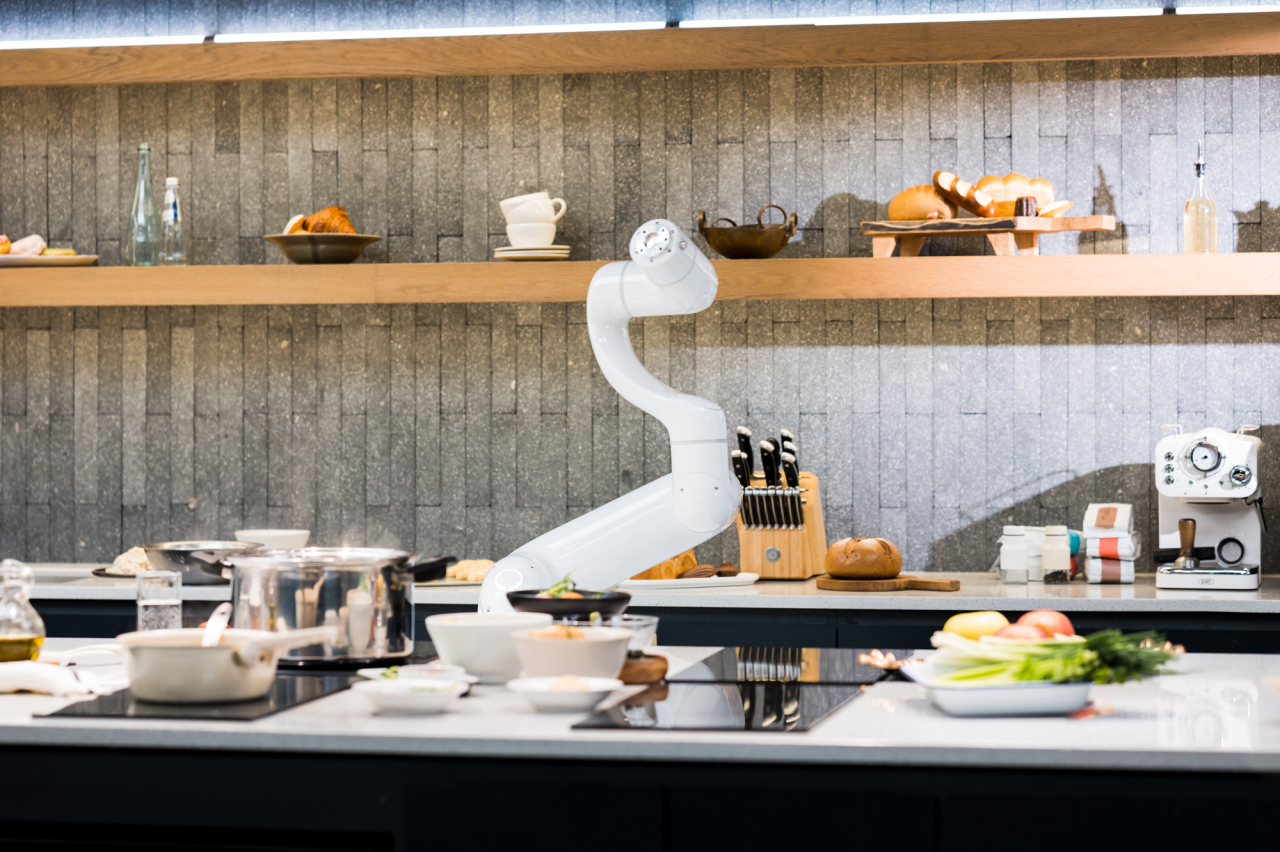 |
Doosan Robotics' E-Series collaborative robot tailored for the food and beverage industry (Doosan Robotics) |
Doosan Robotics, in partnership with Microsoft and Doosan Digital Innovation, is set to develop a context-aware control system for collaborative robots, or “cobots,” based on generative pre-trained transformer technology.
The partnership was formalized Thursday through a memorandum of understanding for Doosan Robotics to employ Microsoft's Azure OpenAI Service for a GPT-based robot control system. Azure will provide access to the GPT language model while Doosan Digital Innovation will be responsible for adapting the model for application in Doosan's cobots.
GPT is a language model that understands and generates human-like text based on vast amounts of data it's trained on. By implementing GPT into robotics, Doosan aims to leverage this comprehension capability, allowing robots to better understand tasks in a more contextual and nuanced manner.
"The main goal with GPT integration is to shorten programming time while enabling these machines to perform a wider array of functions. Our upcoming Dart Suite (its own robot software platform) will showcase how GPT can revolutionize robot efficiency and user interaction," said Doosan Robotics CEO Ryu Jung-hoon.
The integration will enable GPT-powered robots to not only self-correct errors during operation, but also anticipate and adjust their actions based on the given context, reducing manual programming requirements.
For example, for Doosan Robotics' E-SERIES cobots designed for food and beverage preparation, tasks like cooking ramen and tempura simultaneously require intricate programming. With GPT integration, it can autonomously arrange the optimal sequence and perform tasks like cooking and serving based on a simple voice or text instruction, like "cook ramen and tempura."
Moreover, the system is able to access and learn from an existing database of code, reducing the redundancy of programming from scratch for every new task. This ensures adaptability, especially when task requirements evolve or change.
The technology will first be tested in the food and beverage sector this year. Depending on the outcomes, its reach may extend to the manufacturing sector.
Since initiating mass production in 2018, Doosan Robotics has led the local cobot market. By 2021, they achieved fourth position in the global market, excluding China, and consistently sold over 1,000 units in 2021 and 2022.
On Wednesday, the company filed a securities report for its stock debut on the nation’s main bourse Kospi, with an aim to raise between 340.2 billion won and 421.2 billion won ($257 million-$318 million).







